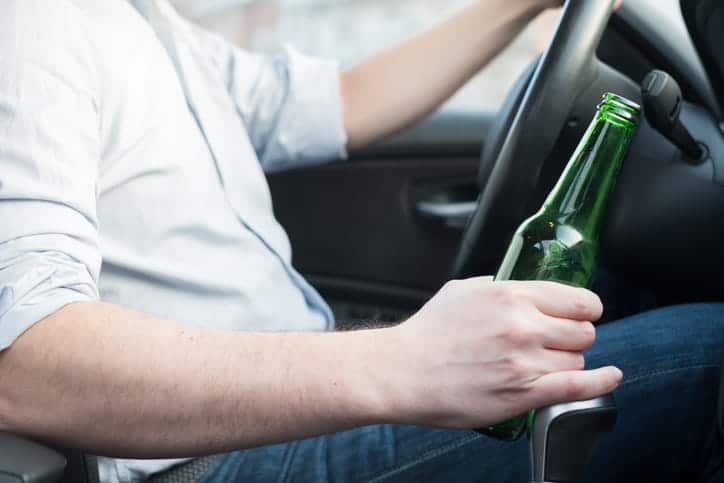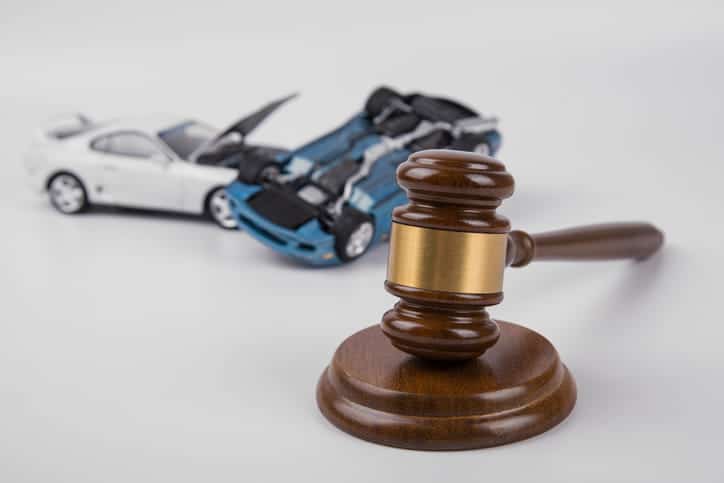How to Report Drunk Driving Anonymously

Motor vehicle accidents (MVAs) in the United States cause tens of thousands of deaths and injure millions of drivers, passengers, cyclists, and pedestrians yearly. The leading causes of MVAs include the following:
- Distracted driving. Distracted driving refers to cognitive, manual, and visual distractions that take a driver’s focus off the road.
- Speeding. Breaking traffic laws by exceeding the speed limit reduces the time drivers have to respond to changes in road conditions, increasing the likelihood they’ll lose control of the vehicle and cause an accident.
- Drunk driving. Drunk drivers include those who consume enough alcohol to elevate their blood alcohol content above 0.08% (or 0.05% in Utah). Drunk driving is categorized as driving under the influence (DUI), which includes impairment by legal or illegal drugs.
Drunk driving is among the most common causes of MVAs in the United States. From 2017 to 2019, drunk driving was a factor in 20% of traffic accidents in Florida, while New York cites drunk driving as a cause or contributing factor in 30% of crashes with fatalities.
Since drunk driving isn’t rare, you may find yourself in a situation where you see a drunk driver operating a vehicle. In that case, you wonder who do you call to report drunk driving or if you can report drunk driving anonymously.
Contact the drunk driving injury attorneys with Jack Bernstein, Injury Attorneys, to find out how we can help you receive fair compensation after a drunk driving accident.
How can you know if someone’s drunk driving?
Before you report a driver, you may wonder how to be sure they’re intoxicated. Some of the signs of a drunk driver include the following:
- Observed consuming alcohol before operating vehicle
- Observed consuming alcohol while operating vehicle
- Swerving without cause
- Erratic driving speeds
- Driving in the wrong lane or shoulder
- Stopping without cause
- Ignoring traffic signs
Unless you witness the driver consuming alcohol, it’s almost impossible to be sure they’re driving under the influence. However, you should always report unsafe driving practices to prevent accidents, whatever the cause.
How to report drunk driving
Cities and states have designated phone numbers you can use to report drunk driving. Suppose you witness someone driving erratically on a highway in Florida. You can call the Florida Highway Patrol at *FHP(347). You can also dial 911 if you’re unsure who has jurisdiction in your location. The 911 operator will identify and notify the appropriate law enforcement agency.
Can you anonymously report someone drunk driving?
You aren’t obligated to provide your name or contact information when reporting a drunk driver. The essential information you should provide when reporting a suspected drunk driver includes the following:
- The location. Specific information is helpful. Ideally, you can identify the street, the direction the driver’s going, and the names of intersecting streets to help law enforcement locate the driver.
- Description of the driver’s behavior. The operator will ask why you suspect drunk driving.
- License plate number. The vehicle’s license plate offers the quickest way to identify the vehicle you’re reporting.
- Vehicle description. Information about the vehicle, including its make, model, and color, can help law enforcement officers identify the right vehicle.
How to report drunk driving anonymously
Some people don’t want to be involved in legal matters. Suppose you suspect a family member is driving while intoxicated, and you don’t want to cause conflict with other family members for reporting your suspicions. Can you report drunk driving anonymously?
You can phone and report a suspected drunk driver without giving your name. When the police intercept the driver, they’ll look for signs of intoxication. They’ll perform a field sobriety test if they suspect the driver’s drunk. The police can request the driver complete a breathalyzer test if the driver fails the field sobriety test. Based on the tests given and their observations, they can arrest the driver and charge them with a DUI.
How can you know if a drunk driver caused your accident?
Suppose you were in an accident. Motorists are required to report MVAs to the police. The police investigate and assign fault for the crash. Victims of drunk driving accidents may discover the cause of their accident by requesting a copy of the police report for their insurance claim.
How will a drunk driving accident lawyer help you after an accident?

You have the option of suing the drunk driver who caused your accident. Drunk drivers may be liable for the following damages:
- Economic damages. These are expenses related to the accident, such as car repair costs and medical bills.
- Non-economic damages. These damages compensate victims for the personal impact of the accident and include things like pain and suffering.
- Punitive damages. Juries award punitive damages when a person’s negligence or gross misconduct causes injuries. Since drunk drivers are breaking the law and taking actions they know may cause bodily harm or death, juries may award victims punitive damages.
Your drunk driving lawyer will investigate the crash and gather the evidence to build your case. Our legal team will handle the paperwork and negotiations while you focus on your recovery, and your attorney will always be just a phone call away, ready to answer your questions and update you on the status of your case.
At Jack Bernstein, Injury Attorneys, we offer free consultations, and we charge contingency fees. If we don’t win, you don’t pay.
Sources:
Gaines, M. (2022). What is a High BAC for a DUI? 2023 Guide.
Florida Highway Patrol: Contact FHP. (2023).
Impaired Driving. (2023).
Newly Released Estimates Show Traffic Fatalities Reached a 16-Year High in 2021. (2022).
Number of road traffic-related injuries and fatalities in the U.S. from 1990 to 2020. (2023).
T, B. (2022). Field Sobriety Tests to Assess Drunk Driving.
